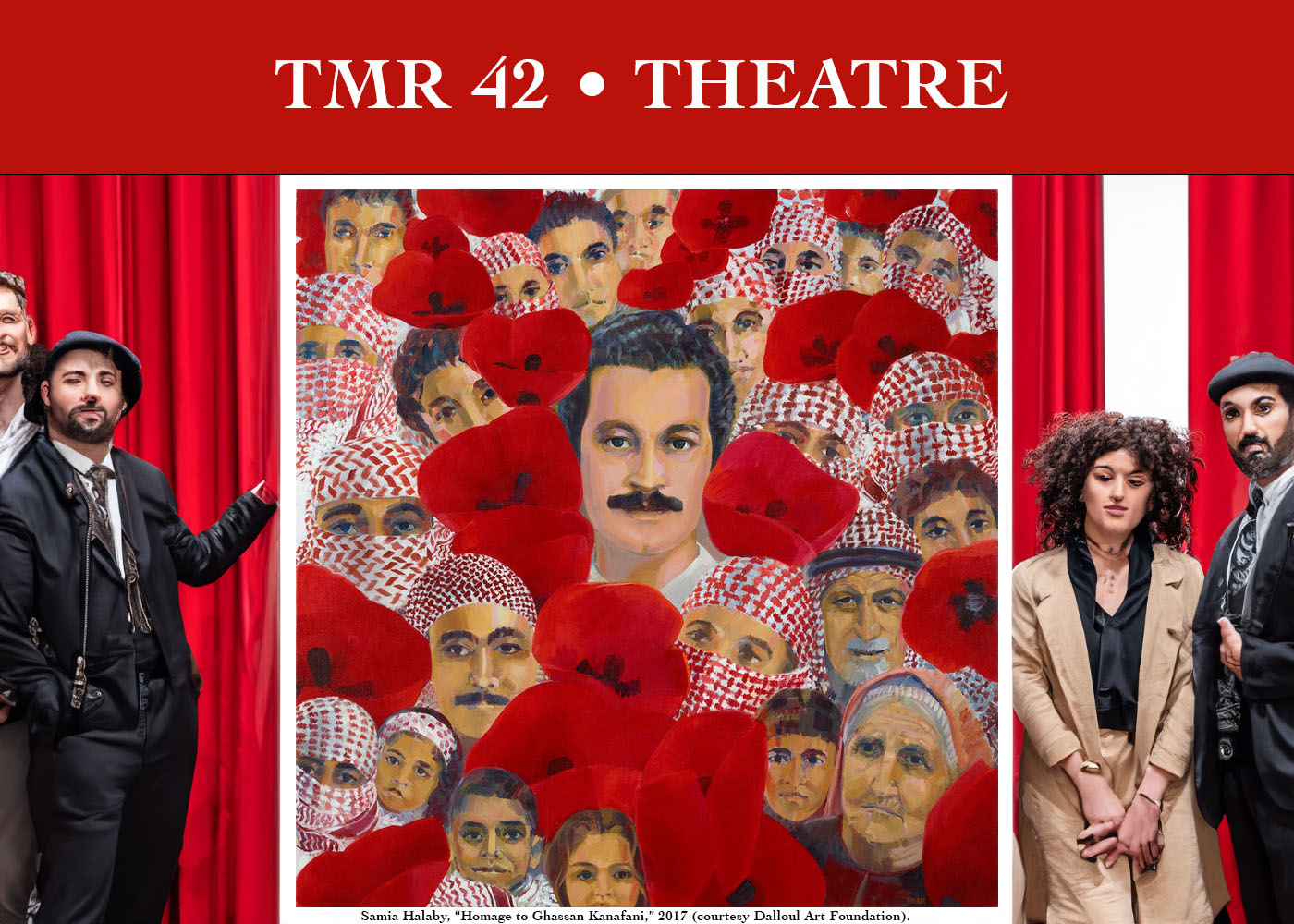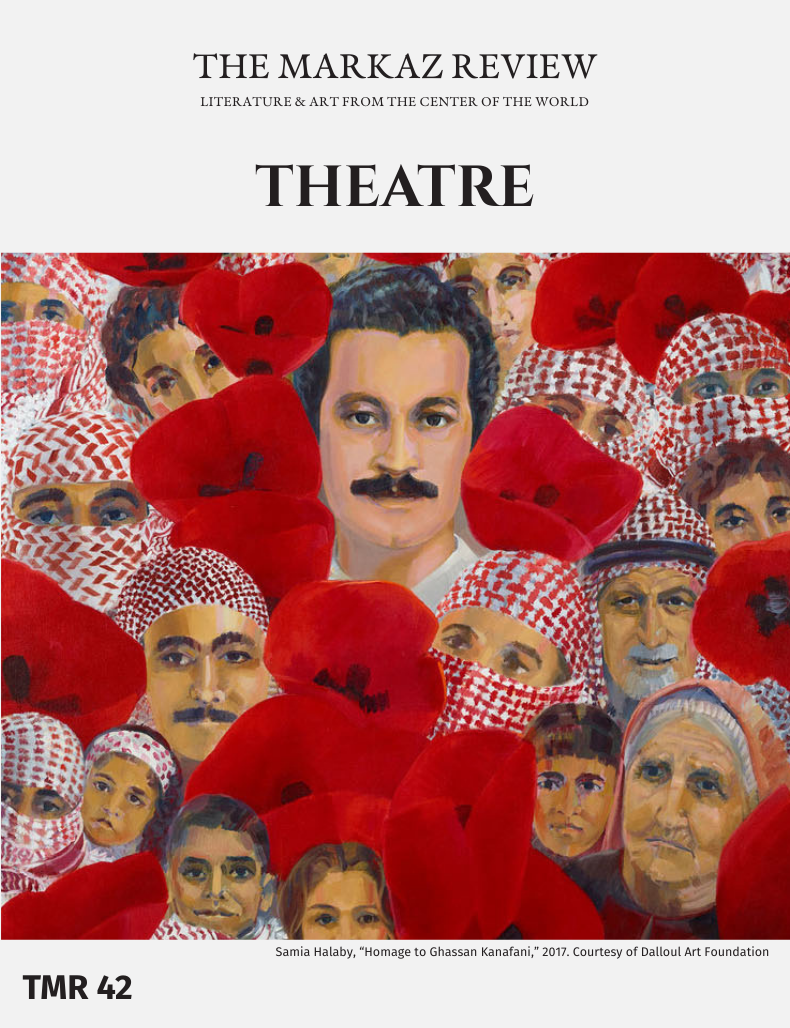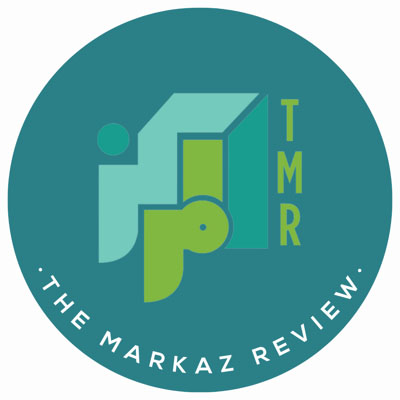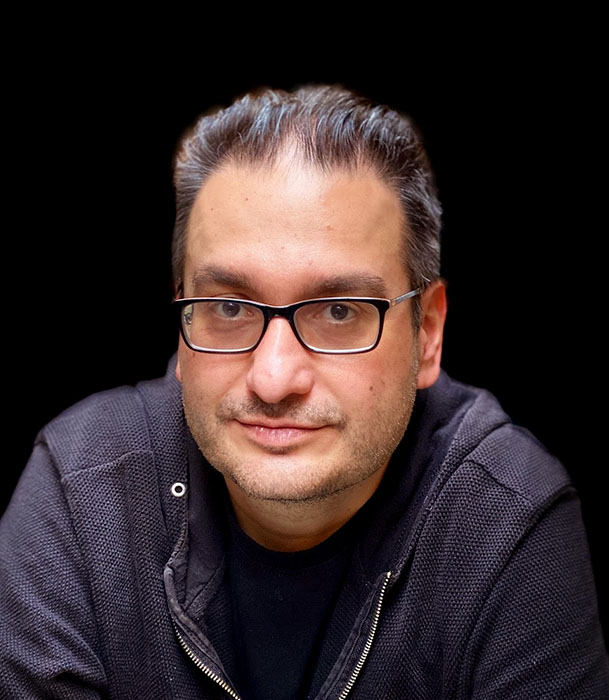In which the editors of The Markaz Review and playwright Hassan Abdulrazzak present the theatre issue.
For this first issue on Arab and Middle Eastern/North African theatre, and the work of playwrights in diaspora — because we assuredly will revisit plays and playwrights in future issues, and hope to cover theatre more consistently — we have invited Iraqi-British playwright Hassan Abdulrazzak to give us a sense of what it was like to be a young drama adept. We also are publishing Abdulrazzak’s latest play, a response to the war on Gaza, Dare Not Speak, as his commentary on the current era of political correctness, censorship and cancel culture.
MY FIRST INTRODUCTION to theatre was in Baghdad, where as a child my parents took me to see a show by a Czech theatre troupe (Czechoslovakia was where I was born). Puppets flew magically in the pitch-black theatre. I was hooked. Later when we had to leave Iraq because of the Saddam regime, we settled briefly in Cairo. There I got to see comic plays starring Adel Emam, Mohamed Sobhi and Fouad el-Mohandes. I remember at one show, a wedding took place in the theatre. The actors often went off script and chatted to the audience. The auditoriums would rock with laughter. These were broad farces with the odd coded critique of government. The most subversive Egyptian play I’ve seen was one I watched much later as an adult and a theatre practitioner when I was invited to the D-CAF festival. It was called The Last Supper and was written and directed by Ahmed El-Attar, openly critiquing the military in those glorious post revolution days before the current clampdown.
I moved to the UK in my early teens. I studied biology, obtained a PhD and later worked as a research scientist at Imperial College. The theatre I watched in the UK up to that point had been safe and mainstream (plays by Tom Stoppard and David Hare dominated the landscape back then). I totally missed the in-your-face theatre of the 1990s and did not see a Sarah Kane play till much later. I moved to Boston in June 2001 to work at Harvard University. It was after 9/11 that my interest in politics deepened. I would spend hours discussing politics with my Tunisian scientist friends in Harvard Square. I devoured books by Edward Said and Tariq Ali and attended a talk by Noam Chomsky at MIT. The anti-Arab, anti-Muslim sentiment that prevailed in those days was too much for me and I suffered what in the old days would have been referred to as a “nervous breakdown” (I was later diagnosed with bipolar disease). I managed to obtain a job at Imperial College again upon my return to the UK but thinking about science solely was no longer intellectually satisfying.
In 2005, I wrote my first play, Baghdad Wedding. It was in response to the 2003 invasion of Iraq. I was partially provoked by David Hare’s Stuff Happens, where Iraqis were marginal to the story. I wanted to put Iraqis center stage in a love story that would move the audience. It was visceral and unfiltered. Most theatres passed up on it, but it caught the attention of Lisa Goldman, the then artistic director of Soho Theatre, who directed the play in 2007. The show received favorable reviews and sold out. I went on to write further plays about the Egyptian Revolution (The Prophet), two plays about Palestine (Love, Bombs and Apples; And Here I Am) as well as a documentary play about deportation (The Special Relationship). Over the years, several Arab playwrights emerged on the scene in the UK and had tremendous success. They include Hannah Khalil (A Museum in Baghdad, RSC), Suhayla El-Bushra (The Suicide, National Theatre), Sabrina Mahfouz (A History of Water in the Middle East, Royal Court), Jasmine Naziha Jones (Baghdaddy, Royal Court), Sami Ibrahim (Two Palestinians Go Dogging, Royal Court) and Ahmed Masoud (The Shroud Maker, RADA and touring). There is also a younger generation of writers, many of whom have their sights set on film and TV as well as theatre. In mainland Europe, Syrian playwrights in particular have established their presence. They include Mohammed Al Attar, Wael Qaddour and Mudar Alhaggi (I’ve had the privilege of translating the work of the latter two).
I don’t want to paint too rosy a picture. Getting work programmed by theatres is still a tremendous challenge and the big theatres are inclined to commission white, often male playwrights to write about the Middle East (e.g. Oslo by J. T. Rogers at the National Theatre) rather than playwrights from the region. — Hassan Abdulrazzak
In addition to the play Dare Not Speak, TMR 42 features The Return of Danton, a play by Syrian playwright Mudar Alhaggi and performed by Collective Ma’louba; the monologue As We Near the End (or What Adorno Said) by Egyptian American playwright Yussef El Guindi; Lameece Issaq’s short play, Noor and Hadi Go to Hogwarts; and Mona Mansour’s What Kind of a Liar Am I?
Essays include Saleem Haddad on “Palestine, Political Theatre & the Performance of Queer Solidarity in Jean Genet’s Prisoner of Love”; Omar Naim’s “Beirut in Two Stages—a Theatre Story,” which includes complementary screenings in VOD of his films Grand Theatre, and Madinatan (Two Cities).There is also Nada Sabet’s “Laughing for Change,” on a nationwide touring production in Egypt on female genital mutilation; and Georgina Van Welie on her decade of experience with the Sabab Theatre, in “Arab Shakespeare?”
We are also pleased to co-publish with Al Jadid, a record of Arab culture and arts, editor Elie Chalala’s story of how playwright Wajdi Mouawad has been yet another victim of censorship, this time in Lebanon, in “Wadji Mouawad’s Controversial Wedding Day“; as well “Nothing is Normal, Nothing is What It Seems” — an interview on underground theatre in Iran, post Woman Life Freedom, by Mehrnaz Daneshvar, translated by Salar Abdoh; a commemorative essay on the very performative Lord Byron among Greeks and Turks, by William Gourlay; and a list of suggested theatre-related books, compiled by Rana Asfour. All comments and correspondence on the issue welcomed; send them to editor@themarkaz.org.






